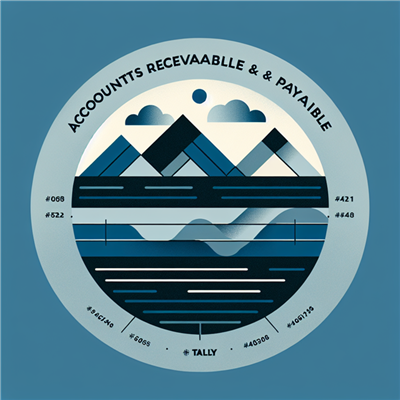
Asset management is a crucial field that plays a significant role in the financial services industry. It involves managing investments on behalf of clients, including individuals, corporations, and institutions. As the financial landscape evolves, professionals in asset management need to stay updated with various skills and knowledge areas. Enrolling in asset management courses can help you acquire these essential skills, making you a valuable asset to any organization. In this blog post, we’ll explore the top skills you will learn in asset management courses.
Understanding of Asset Management Principles
A key component of any asset management training is a thorough understanding of asset management principles. These principles guide the systematic and coordinated activities and practices through which an organization optimally manages its assets, and their associated performance, risks, and expenditures over their lifecycle for the purpose of achieving its organizational strategic plan.
Skills You Will Learn in Asset Management Certification Courses
1. Understanding Financial Markets
A fundamental skill you will acquire in asset management courses is a comprehensive understanding of financial markets. This includes knowledge about various market instruments such as stocks, bonds, commodities, and derivatives. You'll learn how these markets operate, the factors influencing market movements, and the implications of economic indicators.
Understanding the dynamics of financial markets is crucial for making informed investment decisions. You'll delve into market structures, liquidity, and the impact of monetary and fiscal policies. This foundational knowledge will help you analyze market trends, assess risks, and identify investment opportunities.
2. Investment Strategies
Another key skill taught in asset management courses is the formulation of investment strategies. You will learn about various investment approaches, including fundamental analysis, technical analysis, and quantitative analysis. Each of these strategies has its own methodologies and applications.
- Fundamental Analysis: This approach involves evaluating a company's financial health, management team, competitive position, and market potential. You'll learn how to analyze financial statements, assess valuation metrics, and understand industry trends.
- Technical Analysis: This method focuses on price movements and trading volumes. You'll learn how to read charts, identify patterns, and use technical indicators to forecast price movements.
- Quantitative Analysis: This involves the use of mathematical models and algorithms to analyze financial data. You'll explore statistical techniques and data analysis tools to assess investment risks and returns.
By mastering these strategies, you’ll be equipped to create and manage diverse investment portfolios tailored to client objectives.
3. Risk Management
Effective risk management is at the core of asset management. In your courses, you'll learn how to identify, assess, and mitigate risks associated with investments. This includes understanding various types of risks, such as market risk, credit risk, operational risk, and liquidity risk.
Courses will typically cover risk management frameworks and techniques, such as Value at Risk (VaR), stress testing, and scenario analysis. You’ll learn how to develop risk assessment models and implement risk mitigation strategies, ensuring that client portfolios are protected against potential downturns.
4. Portfolio Management
Portfolio management is a central focus of asset management courses. You will learn how to construct and manage investment portfolios that align with clients’ goals, risk tolerance, and investment horizon. This includes asset allocation, diversification strategies, and rebalancing techniques.
You’ll explore the principles of Modern Portfolio Theory (MPT) and the efficient frontier, which will help you understand the trade-offs between risk and return. Additionally, you'll learn how to assess portfolio performance using key metrics, such as the Sharpe ratio and alpha.
5. Financial Modeling
Financial modeling is a vital skill for asset management professionals. Through asset management courses, you'll learn how to build financial models that project future cash flows, assess company valuations, and simulate various investment scenarios.
You'll gain proficiency in using spreadsheet software like Microsoft Excel to create models that help in decision-making. This includes understanding how to input assumptions, conduct sensitivity analyses, and present findings effectively.
6. Regulatory Compliance
In today’s financial environment, regulatory compliance is more important than ever. Asset management courses will cover the legal and regulatory frameworks governing the industry. You’ll learn about regulations such as the Investment Advisers Act, the Securities Act, and the Dodd-Frank Act.
Understanding these regulations is crucial for ensuring that investment practices are ethical and compliant. You'll also explore the implications of regulations on reporting, disclosures, and fiduciary responsibilities.
7. Client Relationship Management
Building and maintaining strong client relationships is essential for success in asset management. In your courses, you will develop skills in client communication, needs assessment, and relationship management.
You’ll learn how to understand clients' financial goals and risk tolerance, allowing you to tailor investment strategies that meet their needs. Furthermore, effective communication skills will help you convey complex financial concepts clearly and build trust with clients.
8. Performance Measurement and Reporting
Measuring and reporting investment performance is a critical component of asset management. Courses will teach you how to evaluate portfolio performance using various metrics and benchmarks.
You'll learn how to create performance reports that summarize investment results, assess consistency with investment objectives, and provide insights for clients. Understanding how to present data effectively is vital for maintaining transparency and accountability.
9. Ethics and Professional Standards
Ethical considerations are paramount in the asset management industry. Courses often emphasize the importance of ethical behavior and adherence to professional standards. You'll explore case studies of ethical dilemmas in finance and learn how to navigate complex situations.
Understanding ethical principles, such as fiduciary duty and the importance of transparency, will help you cultivate a reputation for integrity and professionalism in your career.
10. Technology and Data Analytics
The integration of technology and data analytics is transforming the asset management landscape. Courses will familiarize you with the tools and technologies used in asset management, including financial software, data analytics platforms, and trading systems.
You’ll learn how to leverage data analytics for investment decision-making, performance evaluation, and risk management. Understanding emerging technologies, such as artificial intelligence and machine learning, will also enhance your ability to analyze data and identify trends.
Conclusion
Asset management courses provide a comprehensive education that equips professionals with the skills necessary to excel in a competitive field. From understanding financial markets and investment strategies to mastering risk management and portfolio construction, these courses offer a valuable foundation for a successful career in asset management.
By acquiring these essential skills, you’ll be well-prepared to navigate the complexities of the financial landscape, make informed investment decisions, and build lasting relationships with clients. Whether you’re a beginner or looking to advance your career, enrolling in an asset management course can open doors to new opportunities and enhance your professional development.
Asset management certification not only equips you with these critical skills but also bolsters your resume, making you more attractive to potential employers. Koenig Solutions, a leading IT training Company, offers a comprehensive range of asset management training courses that can help you acquire these skills and earn your certification.
Whether you prefer an online or classroom-based learning environment, Koenig Solutions has a course that suits your needs. So, why wait? Boost your career prospects today by enrolling in an asset management course with Koenig Solutions!







COMMENT